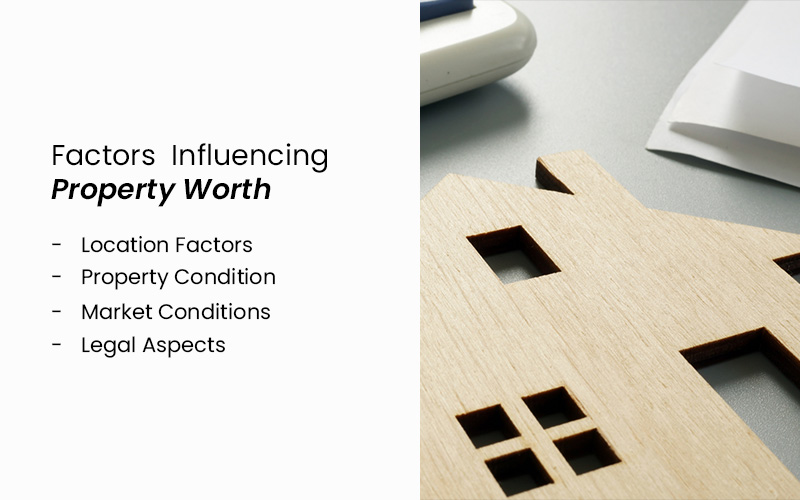What are Property Valuations and Why They’re Important
In contrast, a valuation delivers a more detailed and formal assessment, often used in legal, tax, or corporate contexts. Both processes are essential for informed decision-making, but their scope and applications vary depending on your needs.
Blogs & Articles / What are Property Valuations and Why They’re Important

Understanding Real Estate Appraisal
A real estate appraisal is an expert opinion on the current market value of a property, usually conducted by a licensed professional. Appraisals involve evaluating the property’s physical condition, location, and comparable sales data. This process is crucial in determining accurate property pricing, particularly for securing loans or finalising sales transactions. Unlike informal estimates, appraisals provide a certified value that financial institutions and buyers trust.
Types of Real Estate Appraisal
Real estate appraisals involve various methods to determine a property’s value, each tailored to specific needs and circumstances. These approaches provide a reliable framework for assessing property worth, ensuring accuracy for buyers, sellers, and investors. Here are the key types of real estate appraisal techniques.
Sales Comparison Appraisal
This method compares the property with similar recently sold properties in the area. Adjustments are made for differences in features, size, and condition to determine the appraised value.
Cost Approach
The cost approach calculates the property’s value by adding the cost to rebuild the structure from scratch (minus depreciation) to the land’s value. It’s often used for newer properties.
Income Capitalisation Approach
Ideal for rental or commercial properties, this appraisal assesses the property’s potential to generate income by factoring in rental rates and market demand.
Residual Appraisal
Commonly used for development projects, this approach evaluates a property’s value based on its projected profitability after development costs are deducted.
Property Valuation: A Comprehensive Guide

Property valuation is a cornerstone of the real estate market, particularly in Singapore, where limited land, high demand, and government regulations significantly influence property prices.
A property valuation provides an accurate assessment of a property’s market value, conducted by a licensed appraiser. This involves analysing the property’s characteristics, market conditions, and comparable sales data. Accurate valuations are crucial for buyers, sellers, and lenders to make informed decisions and mitigate financial risks in property transactions.
Purpose of Real Estate Appraisal or Valuation
Real estate appraisals and valuations serve several critical purposes, including:
- Buying or Selling Real Estate: Buyers and sellers rely on appraisals to determine a fair price, ensuring transactions reflect the property’s true market value.
- Securing a Mortgage: Lenders require appraisals to assess the collateral value of a home before approving a mortgage, safeguarding their investments.
- Investment Analysis: Appraisals provide valuable insights for investors evaluating a property’s ROI.
- Insurance and Taxation: Appraisals help establish accurate property tax liabilities and ensure adequate insurance coverage.
- Legal Matters: Appraisals play a vital role in inheritance cases, divorce settlements, and shared ownership disputes by providing an equitable basis for property distribution.
Learn more: Detailed Property Valuation Report: Essential Elements for Accuracy.
Types of Property Valuations
There are two main categories of property valuations:
- Indicative Valuations
Indicative valuations provide preliminary estimates based on general data, such as average prices of similar properties in the vicinity. While useful for initial assessments, these valuations may lack the precision required for legal or financial purposes. - Actual Valuations
Actual valuations involve in-depth analysis by professional property valuation services, offering precise assessments based on physical attributes, market conditions, and comprehensive data. These valuations are essential for transactions, financing, and tax assessments.
Factors Influencing Property Worth

Several factors can impact a property’s worth, and while different appraisers may weigh these factors differently, common considerations include:
1. Location Factors: The value of land is significantly influenced by proximity to amenities, accessibility, and environmental factors such as traffic and pollution.
2. Property Condition: Key elements include property size and layout, quality of construction, interior finishes, maintenance level, and any renovations or additions that enhance value. Historical sale prices of the property and comparable properties, as well as rental income trends, also play a crucial role.
3. Market Conditions: Supply and demand dynamics, economic factors, interest rates, and local market trends can all affect property values.
4. Legal Aspects: Zoning laws, property rights, restrictions, and any legal encumbrances are also important considerations in valuation works.
How Does Valuation Impact Property Purchases for Buyers?

Whether you’re seeking financing or negotiating a purchase price, understanding how valuation work and real estate appraisal impact your property purchase is key. Below are several ways valuations affect buyers during the purchase process.
Impact on Loan Amount
One of the most significant effects of valuation works is on the loan amount a buyer can secure. Banks typically use the Loan-to-Value (LTV) ratio, which is the percentage of the property’s valuation that they are willing to finance. For example, if a bank is willing to finance 80% of the market value of a property, a lower home valuation will reduce the loan amount the buyer can borrow. This means the buyer will need to provide a larger down payment to cover the shortfall. As a result, buyers may find themselves facing higher upfront costs than anticipated, altering their purchasing decisions.
Influence on Taxes and Fees
In Singapore, taxes such as the Additional Buyer’s Stamp Duty (ABSD) and Buyer’s Stamp Duty (BSD) are pegged to a property’s valuation. A higher valuation can lead to significantly increased taxes, raising the overall cost of the property purchase. For example, if the value of a property is higher than initially expected, the ABSD and BSD will be calculated on this higher value, resulting in higher fees. Thus, it’s crucial for buyers to be aware of how the valuation can impact their tax liabilities and prepare accordingly.
Re-Evaluation of Purchase Decision
When a property is appraised lower than expected, it can serve as a powerful tool for renegotiating the purchase price. Buyers armed with a valuation report can approach the seller to renegotiate the price to align with the property’s actual market value. This process can be especially beneficial for buyers who have already secured a favourable mortgage rate or plan to invest in the property long-term.
Benefits of Conducting a Property Valuation for Sellers
A professional home valuation is a critical tool for homeowners looking to sell their property. Engaging professional valuation work offers several advantages, from setting the right price to facilitating smoother transactions. Read on to discover more.
Accurate Pricing Strategy
A professional valuation provides sellers with a clear understanding of the property’s true market value, allowing them to establish a fair and accurate asking price. Pricing too high can deter potential buyers, while pricing too low can result in a significant loss of profit. By setting a price based on an objective valuation, sellers can attract the right buyers and maximise their returns without overpricing their property.
Building Buyer Confidence
A home with a valuation provides transparency, which helps potential buyers feel more confident in their decision to purchase. This can make the property more attractive to serious buyers who are looking for fair deals and can even speed up the sales process. Additionally, having valuation works done can help sellers manage expectations and set realistic timelines for selling their property.
Supporting Loan Applications
When the home valuation aligns with the buyer’s loan amount, it ensures that the sale can proceed without issues related to insufficient funds or reappraisal concerns. This increases the likelihood of a smooth and successful transaction, making the sale more appealing to buyers who may otherwise struggle to obtain financing.
Minimising Disputes and Negotiations
An impartial, third-party valuation gives both the seller and the buyer a clear, objective basis for discussing the property’s worth. This can reduce the likelihood of prolonged negotiations as both parties are working from the same starting point, leading to quicker, less contentious sales.
Do You Need a Real Estate Appraisal or a Valuation?
Deciding between a real estate appraisal or a valuation depends on your specific needs. Real estate appraisals are often required for securing loans, buying or selling properties, or resolving disputes. They provide a certified opinion of the property’s market value.
On the other hand, valuations are typically more comprehensive and formal, suitable for legal, tax, or corporate purposes. Understanding these differences ensures you choose the right service for your property needs.
Questions You May Have

To further clarify the concept of property valuation, here are some frequently asked questions.
Who Determines the Valuation for HDB Flats and New Properties?
For HDB flats, official valuation works are typically conducted by the Housing and Development Board (HDB) and HDB’s panel of private valuation firms. This ensures that the property’s value is aligned with current market conditions and government guidelines. In the case of new properties such as condominium units purchased directly from a developer, banks often use the developer’s listed price as a reference point for valuation. However, they may seek independent assessments if deemed necessary, especially if the market conditions suggest that the listed price might not reflect the actual market value.
Similarly, for new private commercial and industrial properties, valuations are influenced by the developer’s pricing strategies and market conditions. Banks typically consider the developer’s listed price as a starting point but may engage independent valuers to ensure that the property’s worth aligns with current market trends. This independent assessment is particularly important for investors or businesses seeking financing, as lenders need to ensure that the valuation reflects the property’s true potential and aligns with their risk management criteria.
Who Determines the Valuation for Private Properties?
When it comes to private properties, valuation works are usually carried out by professionals accredited by the Singapore Institute of Surveyors and Valuers (SISV). Established real estate firms like CKS Property Consultants also provide property valuation services on current market trends, comparable sales, and other relevant factors.
What is the role of a real estate appraiser?
A real estate appraiser provides an expert opinion on a property’s market value, factoring in its condition, location, and comparable sales. Their assessments are essential for informed decisions in buying, selling, or financing properties.
How does a real estate appraisal differ from a valuation?
A real estate appraisal is a professional assessment of a property’s current market value, often used for loans or transactions. A valuation, however, is more formal and detailed, typically conducted for legal, corporate, or tax purposes.
Does renovation always increase property value?
The impact of renovations on property value can vary significantly based on several factors, including the timing of the renovation, the amount spent, the style of the renovations, and the specific features installed. For instance, renovations carried out in a thriving market may yield a higher return on investment than those conducted in a downturn. Additionally, modernising spaces in commercial or industrial properties to enhance functionality and appeal can attract better tenants or buyers, while renovations that do not align with market trends or tenant needs may not significantly increase property value. Ultimately, careful consideration of these factors is essential for maximising the return on investments.
CKS Property Consultants is Singapore’s longest-established local valuation firm, renowned for its extensive experience and expertise in the field of valuation work. As the only local firm on all major bank panels, CKS provides unparalleled credibility and reliability in its services. Our valuation team consists of licensed valuers from IRAS and members of the Singapore Institute of Surveyors and Valuers (SISV), boasting over 100 years of combined experience. With more than 200,000 property valuations conducted in the past 30 years, we have built a trusted reputation for delivering accurate and insightful property assessments.
Looking for a professional and personalised home valuation or require expert assistance in determining the market value of a property? Schedule a consultation with us and discover how our professional valuations can help you navigate the property market with confidence.
Related Articles
Navigating Singapore’s property market without reliable valuation insights can lead to costly missteps. For investors, up-to-date, data-driven assessments are essential...
When you're making major real estate decisions in Singapore, you need more than just numbers on a page. Property valuation...
Copyright © 2024 CKS Property Consultants Pte Ltd




